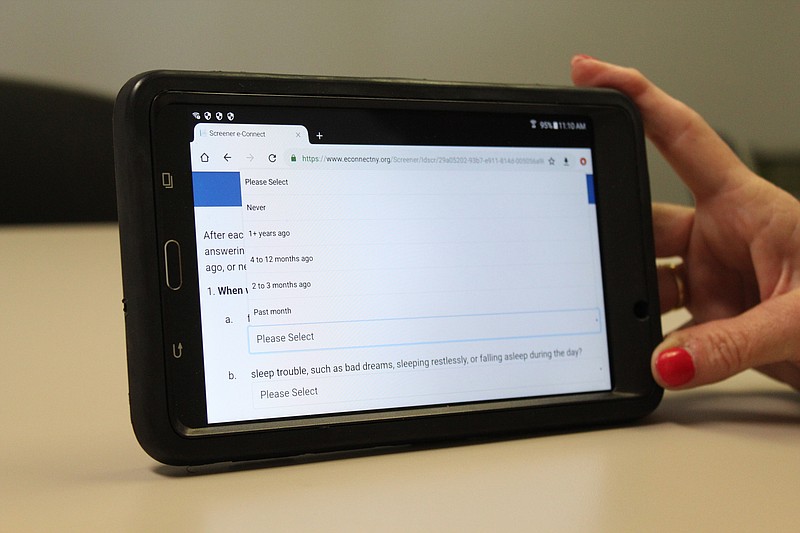ALBANY, N.Y. (AP) — Probation departments across New York have started screening young offenders for risk of suicide as a way to connect them with mental health services.
Ten counties in upstate New York are participating in the program developed by researchers at Columbia University. The project, called e-Connect, includes counties that cover rural swaths of the state.
Probation officials hope addressing young offenders’ mental health needs will help cut down their chances of getting in trouble in the future.
They said the program will streamline access to mental health services at a time when research shows suicide rates among teenagers and young adults have been rising nationally. A report in the Journal of the American Medical Association found 2017 suicide rates for teenagers and young adults nationwide were the highest since at least the start of the century.
Many youths end up in the juvenile justice system after other social safety nets have failed and bring with them mental health needs like depression and anxiety, said Gail Wasserman, co-director of the Center for the Promotion of Mental Health in Juvenile Justice at Columbia University.
There are a lot of mental health services in Albany County, “but there are wait lists quite often and it’s difficult sometimes to get our kids in,” said Colleen Breslin, deputy director at the county’s probation department.
With e-Connect, juveniles are screened digitally using a tablet and they are directed to mental health services based on the results.
Youth who take the screening and are classified as having the highest risk of suicide, for example, are seen by a mental health provider right afterward for an assessment. Under the second most serious classification, juveniles are seen by a medical service provider within 72 hours of the screening.
“It gives us one more tool to look at youth” and assess their lives on the whole, said Jay DeWispelaere with the probation department in Cayuga County.
The program will mainly screen youths 17 and younger, though Breslin said some 18-year-olds may be included.
Probation officials said their employees are already conscious of suicide risk among young offenders, but the new tool will give them a concrete path forward for a mental health response in each case.
“It takes the subjectivity out of it for us and that stress of, ‘are we making the right decision?’” said Lynne Mignemi, the probation director in Livingston County. She said her county plans to start the program later this week.
Most of the counties have already begun screening.

